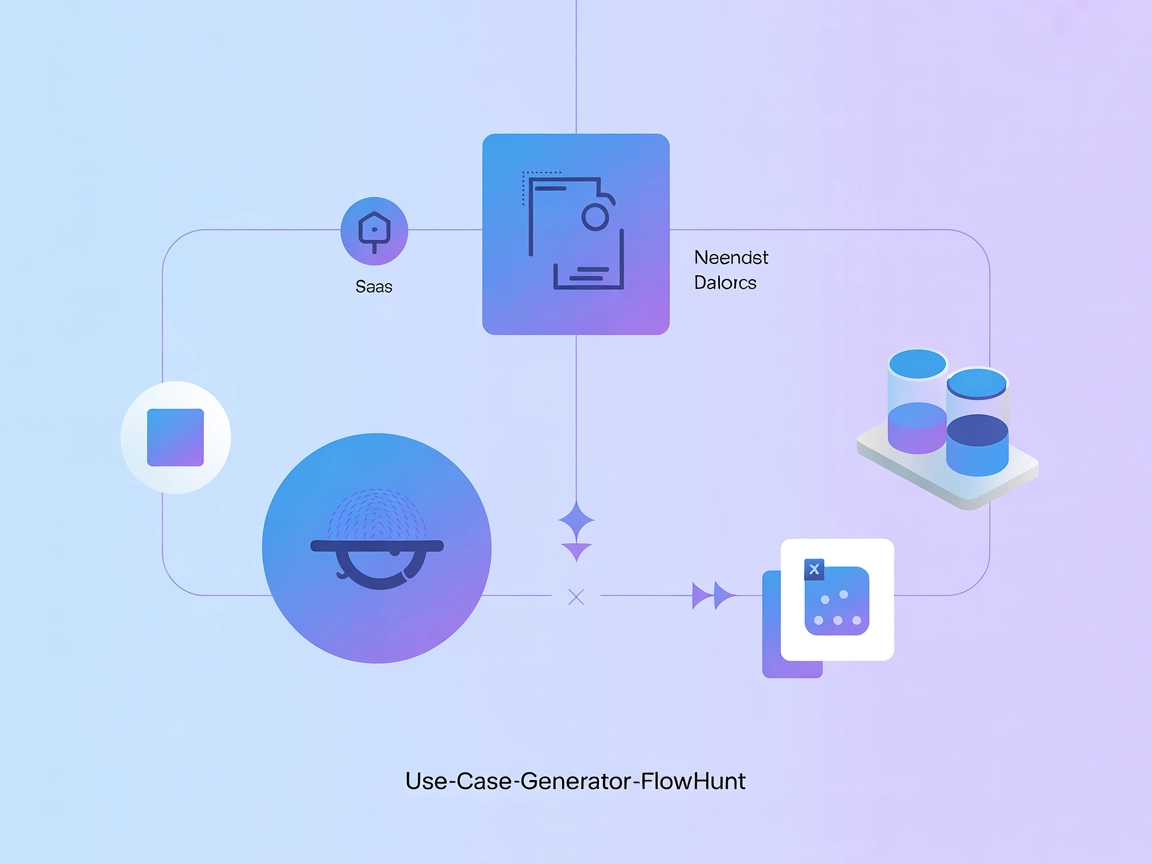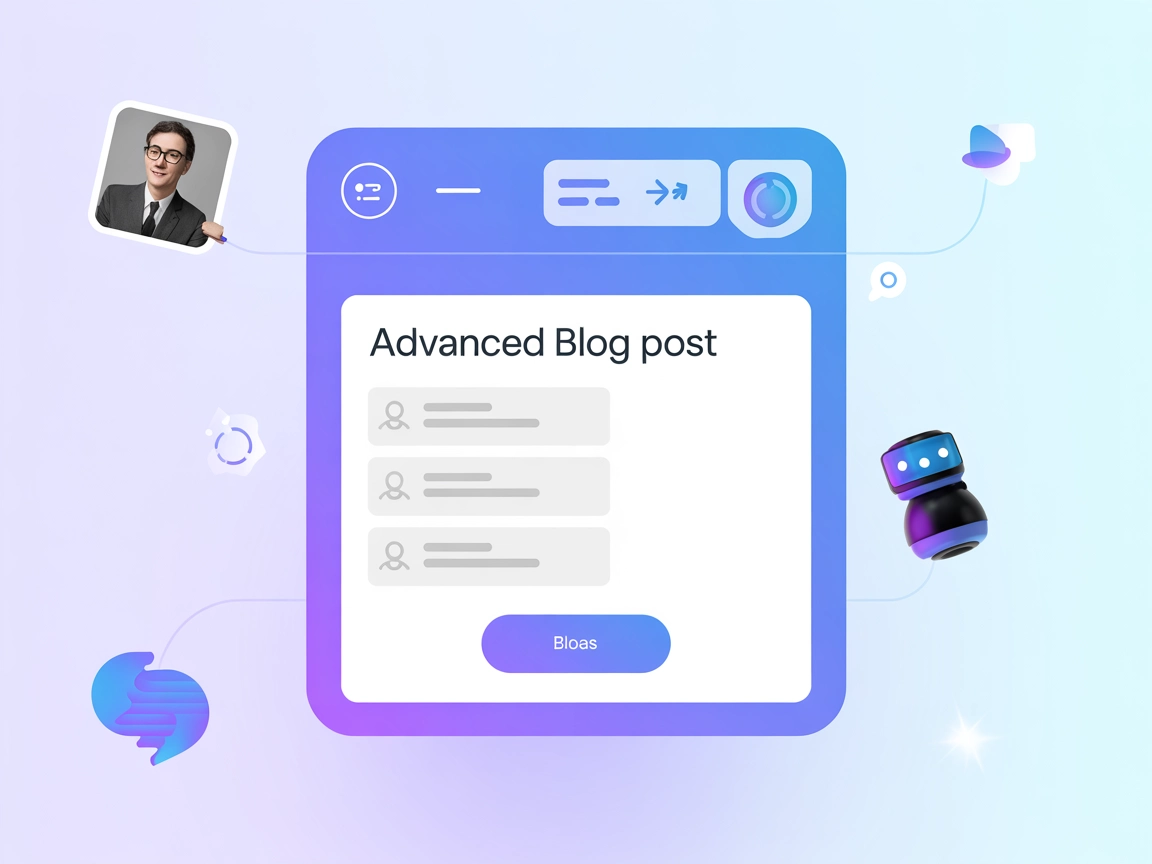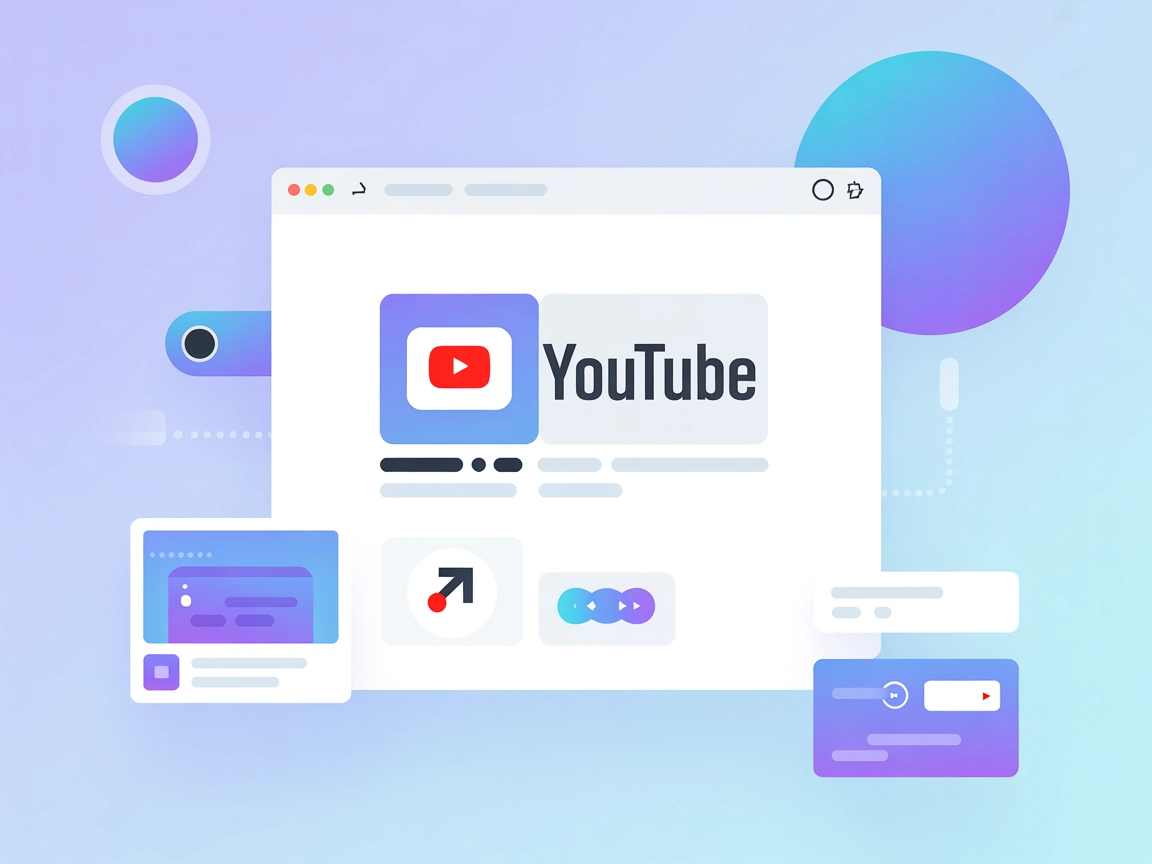
Use Case Generator Tool
Discover the Use Case Generator Flow on FlowHunt.io, a versatile tool for marketers and sales professionals. Learn how it enhances product understanding, boosts...
AI website generators automate website creation and allow code export, offering an easy yet flexible solution for both non-tech users and developers.
An AI website generator with code export is a software tool that leverages artificial intelligence to automate the creation of websites while providing the ability to export the underlying code. This means that users can generate a fully functional website through AI-driven processes and then access, modify, or deploy the raw code as needed. This technology combines the ease of drag-and-drop website builders with the flexibility and control that comes from having direct access to the website’s codebase.
An AI website generator with code export is a platform that uses artificial intelligence algorithms to create websites based on user inputs or predefined templates. The “AI” component refers to the tool’s capability to understand user requirements, generate content, design layouts, and optimize user interfaces without manual coding. The “code export” feature allows users to obtain the generated website’s source code, typically in standard web development languages like HTML, CSS, and JavaScript, or even in popular frameworks like React, Vue, or Angular.
This combination offers a unique solution for individuals and businesses who want the convenience of AI-assisted website creation but also need the flexibility to customize the code. It bridges the gap between no-code/low-code platforms and traditional web development, catering to a wide range of users from non-technical creators to professional developers.
An AI website generator with code export typically operates through the following steps:
Web developers often need to create prototypes to showcase ideas to clients or stakeholders. An AI website generator with code export allows developers to quickly generate a baseline website that they can further customize. For instance, a developer can input a prompt like “Create a modern website for a fitness app” and get a starting point complete with relevant layouts and content.
Small business owners or entrepreneurs without coding expertise can create professional websites without hiring a developer. They can rely on AI to handle the technical aspects while still having the option to export and own the code. For example, a restaurant owner could generate a website featuring their menu, location, and contact information by simply describing their business.
Students learning web development can use these tools to study how websites are structured. By generating a website and exporting the code, they can examine and experiment with real-life examples to enhance their understanding of HTML, CSS, and JavaScript.
Companies launching marketing campaigns may need temporary landing pages or microsites. AI website generators enable rapid creation and deployment, and with code export, the in-house development team can ensure the site meets all security and compliance requirements before going live.
Web design agencies can use AI website generators to produce customizable templates. They can generate a base design, export the code, and then tailor it to each client’s specific needs, saving time while still delivering personalized solutions.
The AI component leverages machine learning to design aesthetically pleasing layouts and generate relevant content. This includes selecting suitable fonts, color schemes, and imagery that align with the user’s industry and preferences. Some advanced systems also use AI to generate textual content, such as product descriptions or blog posts, using natural language generation.
Many of these tools feature a user-friendly drag-and-drop interface. Users can add, remove, or rearrange elements on the page without dealing with code. This visual approach makes website creation accessible to users without design or coding backgrounds.
Websites generated are typically responsive, meaning they automatically adjust to look good on various devices, including desktops, tablets, and smartphones. The AI ensures that the design elements scale appropriately across different screen sizes.
The ability to export code is a distinguishing feature. Users can download the website’s source code in various formats:
Some AI website generators include built-in SEO optimization features. The AI can generate meta tags, optimize load times, and structure content in ways that are favorable to search engine algorithms, improving the website’s visibility.
These tools often support integration with third-party services, such as analytics platforms, marketing tools, or eCommerce systems. This allows users to enhance the functionality of their websites without extensive coding.
While users can export code to deploy on their own hosting platforms, many AI website generators also offer hosting services. This provides an all-in-one solution where users can build, customize, and launch their websites from a single platform.
| Platform | Main Features |
|---|---|
| TeleportHQ | AI-generated websites, export in React/Vue/Angular, Figma import, team collaboration. |
| CodeDesign.ai | AI-based design generation, code export, drag-and-drop editing, content generation, hosting. |
| Mobirise | Free offline website builder, code export, pre-designed templates, drag-and-drop, AI content and image generation. |
| Dorik | Prompt-based website creation, AI-generated copy and images, clean code export in HTML/CSS/JS, full control. |
TeleportHQ is a platform that allows users to generate websites using AI and export the code in multiple JavaScript frameworks, including React, Vue, and Angular. Users can start from templates or import designs from tools like Figma. TeleportHQ supports collaboration between developers and designers, making it suitable for professional web development teams.
CodeDesign.ai is an AI website builder that enables users to build, host, and export websites. It uses AI to generate website designs based on user input, and users can export the code for further customization. With features like drag-and-drop editing and content generation, CodeDesign.ai caters to both beginners and experienced developers.
Mobirise offers a free AI website builder that allows users to create websites offline and export the code for hosting anywhere. It provides a collection of pre-designed templates and supports drag-and-drop functionality. Users can generate content and images using AI, making the website creation process more efficient.
Dorik is an AI website builder that helps users generate websites by simply typing a prompt. It can create professional websites, generate compelling copy, and even produce images using AI. Users can export clean and un-minified HTML, CSS, and JavaScript code, giving them full control over their websites.
AI website generators with code export are used to accelerate the web development process. Developers can generate a basic structure and then fine-tune the exported code to meet specific requirements. This reduces the time spent on repetitive tasks and allows developers to focus on more complex aspects of the project.
By providing access to the source code, these tools offer flexibility that traditional website builders may lack. Users can customize every aspect of their websites, from design elements to backend functionalities. This is particularly useful for businesses that need to integrate custom features or comply with specific technical standards.
These platforms are beneficial for those learning web development. Users can see how changes in the design interface affect the underlying code. This hands-on experience helps learners understand the relationship between front-end design and code structure.
Some AI website generators include AI-powered content creation. This can be used to generate website copy, blog posts, or product descriptions. For example, a user could ask the AI to “Write a compelling description for a new eco-friendly water bottle,” and the AI would generate the text.
AI can assist in creating multilingual websites by translating content into different languages. This expands the reach of a website to a global audience without the need for manual translation.
Automating the initial stages of website creation saves significant time. Users can get a functional website up and running much faster than building from scratch.
For small businesses or individuals, hiring professional web developers can be costly. AI website generators offer a budget-friendly alternative while still providing professional results.
These tools make website creation accessible to those without technical skills. The intuitive interfaces and AI assistance lower the barrier to entry.
The ability to export code ensures that users have full control over their websites. They are not locked into a particular platform and can host their site anywhere or modify the code as needed.
As a business grows, the website can be scaled and customized accordingly. Developers can build upon the exported code to add new features or improve performance.
Features that support collaboration between designers and developers streamline the workflow. Teams can work together more effectively, combining creative design with technical implementation.
Online retailers can quickly set up a storefront with AI-generated product pages, shopping carts, and checkout processes. The code export feature allows for integration with inventory management systems or custom payment gateways.
Real estate agencies can create websites showcasing property listings with image galleries, maps, and contact forms. AI can generate descriptions for properties, and developers can integrate MLS databases using the exported code.
Hotels and travel agencies can develop websites with booking functionalities, virtual tours, and multilingual support. AI can assist in creating engaging content, and the exported code can be customized to integrate with reservation systems.
Educational institutions can build websites for courses, enrollment, and student resources. AI can help generate informative content, and developers can tailor the exported code to integrate with learning management systems.
Non-profits can create websites to raise awareness, accept donations, and promote events. AI tools can generate compelling narratives, and the exported code allows for customization of donation platforms or volunteer sign-up systems.
While AI has advanced significantly, the content it generates may require human review and editing to ensure accuracy and appropriateness. Users should not rely solely on AI for final content.
Although the ability to export code is a significant advantage, users who wish to modify the code may need programming knowledge. This could be a barrier for non-technical users who require custom features.
Some AI website generators may impose limitations on code export or require subscriptions for full access. Users should evaluate the terms of service to ensure they meet their needs.
While many tools offer basic SEO features, achieving optimal performance may require additional expertise. Developers might need to optimize the exported code further to meet specific SEO strategies or performance benchmarks.
Exported code must be scrutinized for security vulnerabilities. Users should ensure that the code follows best practices and complies with security standards, especially when handling user data.
Whether it’s a small business owner creating an online presence, a developer seeking to streamline their workflow, or an organization aiming to reach a wider audience, AI website generators with code export provide the tools necessary to achieve these goals. As AI technology continues to evolve, we can expect these platforms to become even more sophisticated, offering enhanced features and greater potential for innovation in web development.
An AI website generator with code export is a tool that uses artificial intelligence to automate website creation and allows users to export, modify, and deploy the site’s code in HTML, CSS, JavaScript, or popular frameworks.
Both non-technical users and professional developers benefit, as these tools simplify website creation, offer customization through code export, and accelerate prototyping and deployment.
Common use cases include rapid prototyping for developers, empowering non-technical users to build websites, educational purposes, quick deployment of landing pages, and creating customizable templates for agencies.
Key features include AI-powered design and content generation, drag-and-drop interfaces, responsive design, code export options for HTML/CSS/JS or frameworks, SEO optimization, third-party integrations, and hosting options.
Challenges include ensuring the quality of AI-generated content, the learning curve for code customization, potential platform limitations, and the need for security and SEO optimization when using exported code.
Start building your own AI solutions with intuitive website generators and code export capabilities.
Discover the Use Case Generator Flow on FlowHunt.io, a versatile tool for marketers and sales professionals. Learn how it enhances product understanding, boosts...
Discover how an Advanced Blog Generation Flow uses AI tools to produce high-quality, SEO-optimized, and engaging blog content efficiently. Learn the process and...
Discover how FlowHunt's 'Web Page from YouTube Transcript' tool transforms YouTube video transcripts into formatted web content, enhancing SEO and accessibility...

